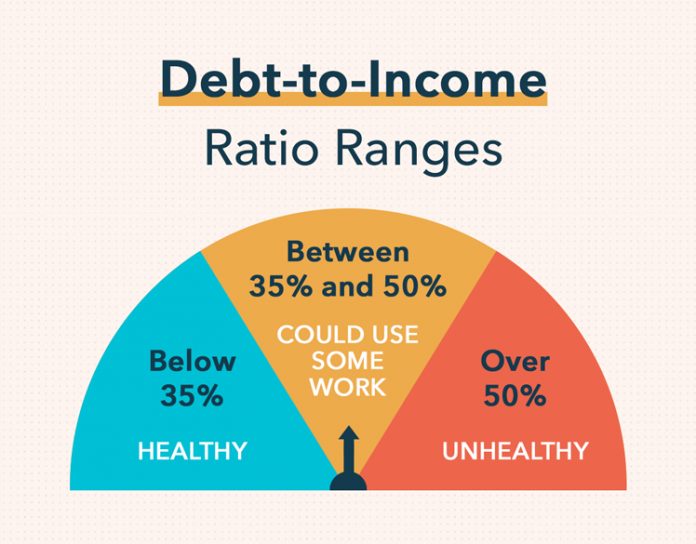Approaching retirement with an outstanding mortgage can be an unsettling prospect. However, it does not necessarily have to cause a major financial headache for you or your loved ones.
Increasingly, lenders are acknowledging the fact that more people than ever need to borrow money beyond their retirement using means such as bridging loans. Consequently, the market for post-retirement products and services is more dynamic and accessible than it has been in some time or before. Keep on reading and understand all there’s to it.
What You Should Know About Eligibility?

The affordability checks conducted by major banks and specialist lenders have changed significantly over the years. Today, eligibility is determined primarily on the basis of affordability; not simply the age of the applicant. This means that even if an individual’s income is set to decrease significantly when they retire, it will not necessarily count them out of the running.
As their outgoings will also likely decrease and they may have other funds at their disposal, they could be eligible for a wide range of competitive products. Things like a state pension, private pension income, investment income, buy-to-let income, salary, or dividends could all be factored in when the lender conducts its affordability checks.
As affordability checks and related policies vary significantly from one lender to the next, independent broker support should be sought from the earliest possible stage.
“There are varying attitudes among lenders with regard to what income is acceptable such as a pension, buy to let mortgages, investments, etc,” commented Mark Harris, chief executive of mortgage broker SPF Private Clients.
“Independent legal advice and power of attorney may be required,”
No Shortage of Options Available
Older borrowers are being reminded to consider the wide range of flexible and affordable options available beyond the High Street. While some major banks are notorious for giving senior applicants anything but a warm welcome, some of the UK’s more flexible lenders consider all cases by way of individual merit.
Some specialist lenders with mortgage deals available have an upper age limit of 95. Though on the High Street, the maximum age by which a mortgage must be paid off in full is usually much lower.
“More lenders have now extended the maximum age to which they will consider lending such as the Halifax up to 80, Leeds building society up to 85,” said David Hollingworth, associate director, L&C Mortgages.
Retirement Interest-Only Mortgages

One of the newer options available for older borrowers looking to extend their mortgage is the retirement interest-only mortgage. These kinds of mortgages can run until the property is sold, on death, or on a move into long-term care, as opposed to having a term at the end of which the loan must be repaid.
“Retirement interest-only mortgages work in a similar way to standard mortgages in that they are assessed for affordability and you will need to make a monthly payment, but they do not have a set term,” commented Matthew Fleming-Duffy of Cherry Mortgage and Finance.
“There are also some more specialist lenders that offer retirement interest-only including Hodge and Livemore Capital.”
Equity release is another popular option, though must be considered strictly under the advisement of an experienced independent broker such as ukpropertyfinance.co.uk. The cost-effectiveness of equity release products differs significantly from one provider to the next, and could in some instances adversely affect the borrower’s financial position.
“The potential issue with this is interest is still charged and will compound over the years, which in turn means that there will be less cash left to pass on to beneficiaries,” said Mr Fleming-Duffy.
Top 6 Steps That You Can Take & Do
1. Check your credit score

If you’re preparing to retire, chances are that you already have a well-established credit profile. Usually, anything above the score of 620 is considered to be high quality & a good score for your future plans/retirements. This same applies to your mortgage score.
2. What’s your income like after retirement
A homebuyer’s income is another important factor when applying and qualifying for a mortgage. Make sure that you have all of your paperwork good to go, such as Social Security, pension income, dividends, and interest payments. Although a time-consuming & boring process to some, this is key and crucial for your future steps.
3. Debt-to-income ratio

What are your monthly debt payments like when compared to your gross monthly income, but only viewed and expressed through a percentage? A DTI of 43% or less is necessary for your mortgage, so do your research and convert it before doing any other tasks.
4. Type of property
Are you planning to put a mortgage on your primary residence, or your summer house? These two are different and have pros & cons to them. If you already have an existing mortgage on your primary home, putting the second one on your other house will be tricky, so consider all of your options.
5. Apply for a mortgage

Work with your lender or financial institution to get a deal that works well for you. If your current lender isn’t offering competitive rates, browse around and try to find one with low rates and limited closing costs and origination fees. Aim for a pre-approval while you’re doing the process since it can speed up your approach & help within a moment.
6. Some down payment options

Down payment options for retirees are more diverse than for traditional mortgages, in case you didn’t know. For some, they will have to put away 5% of the purchase price. You could also make a traditional down payment by pulling cash from an IRA, or any account that is a tax-deferred account.
In conclusion, you can extend a mortgage later in your life, only with the right steps & a proper approach. Let us know if you found this article helpful, as well as our tips & tricks on how to deal with any big or small issues & questions that were hard to resolve.









